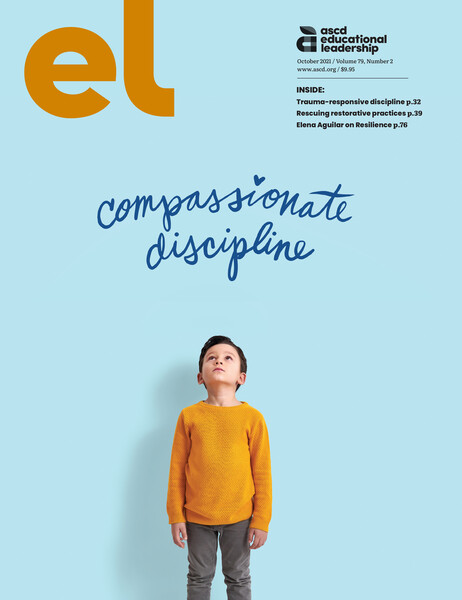Q: I'm an ELA and social studies educator at a small middle school. We do not have a department head, though we used to have a fairly experienced and cohesive subject team. Everyone got along well, and there was a good sense of respect and support. Planning and developing new curriculum were shared between us all, with a good balance between enthusiasm for trying new ideas and keeping good projects that built critical skills. Recently, there have been significant changes to the entire school faculty. The new teachers all have very different backgrounds in terms of their educational approaches, and a few of them have been pretty critical in their responses to other team members' ideas. My administrator suggests we find some professional development to help us get on a similar page. Is that the best solution?—Trying to Team Build in NYC
October 1, 2021
•
5 min (est.)•
Vol. 79•
No. 2Ask an ASCD Expert / Veteran Educator Finds Friction with New Teammates
ASCD faculty and authors respond to educators' dilemmas.
A: First, I think your team should focus on how you view and define challenges at your school. Begin with the concept of "adaptive challenges" as found in Leadership Without Easy Answers (Harvard, 1998) by Ronald Hiefitz. Leading adaptive work is not about a title; it's about the adoption of a mindset designed to build the resilience to address complex organizational challenges. It is about looking beyond our own ambition and leading in a way that encourages change for the better in our organizations. Adaptive solutions not only improve the lives of individual employees, but also the whole organization.
The two challenges that your organization will likely encounter are technical challenges and adaptive challenges. Technical challenges can usually be solved with expert knowledge when the problem, definition, solution, and implementation are clear. Adaptive challenges, on the other hand, cannot be solved by current knowledge. They require innovation and a change in the collective mindset of all employees. Also, adaptive challenges are based on the premise that everyone is a part of the problem and everyone must be a part of the solution.
Now, knowing this, be laser-focused on "relationships over being right." When teams begin to break down from dysfunction, it's usually due to eroded trust. Focus on engaging new members and re-engaging those who are returning. Spend time as a team developing interpersonal skills with the intent to build quality relationships with each other. To be effective at adaptive solutions, you must build relationships, especially with diverse stakeholders.
Finally, I would suggest closing the solutions loop by grounding team meeting discussions with evidence. Here are three suggestions to make that happen:
Understand the role of data in the work of instructional improvement. Gather information from learning results to determine your next steps, rather than relying on each team member's opinion.
Appreciate and cultivate habits of mind that support the work of improvement. Determine as a school what should be present for driving the belief of learning. For example, is it persistence, managing impulsivity, listening, applying past knowledge to new situations, or something else? See www.habitsofmindinstitute.org for more information.
Explore elements needed to implement a successful development process. A research-based improvement process, like Datawise, with distinct steps will support your teachers in working together to tackle school needs, despite their different philosophies and approaches.
I think you are right to be diligent about finding solutions to these issues. Your students will benefit from a more tightly aligned instructional team.






